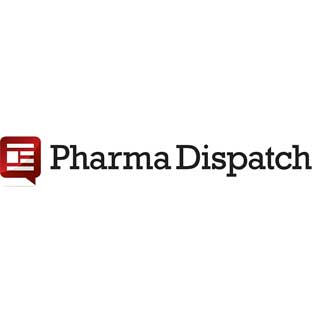Latest News

Pharma Dispatch: 16 April, 2020
Pharma Dispatch
16 April 2020
STA: New fees a "major barrier" to patient access
Specialised Therapeutics Australia says proposed further increases in PBS submission and listing fees are "prohibitive" for smaller companies and risk becoming a "major barrier" to patient access to new medicines.
The Department of Health recently announced new and higher cost recovery fees for new vaccines and medicines that will be implemented from mid-2020. They build on the range of fee changes implemented from mid-2019.
Specialised Therapeutics Australia (STA) is a privately owned pharmaceutical company led by Carlo Montagner.
"Our mission has always been to fulfil unmet medical needs – we do not in-license ‘me-too’ therapies where there is a comparable competitor already in the market," said the company in its submission on the proposed fees.
"All products in our portfolio are carefully and prudently selected for the incremental clinical benefit they provide, particularly to smaller patient populations. Typically, we partner with smaller European or USbased biotech companies that do not have a presence in our region. Therefore, if STA did not partner
with these companies, their products would not be available to patients in Australia," it said.
The company said it backs the concerns raised by Medicines Australia.
"These fee increases will mean the cost of submitting a major submission is now well in excess of $300,000 – irrespective of whether the application is successful," it said.
"STA has estimated that the combination of fee increases, new fees for various processes and internal costs of submission preparation will mean that the real cost per submission is approaching $750,000.
"Considering that it typically takes several submissions to achieve a PBS listing, companies need to budget almost $2 million for a single submission, with no predictability that the submission will be successful or commercially feasible, if onerous listing conditions are mandated by the PBAC."
It said the cost of making a submission is "increasingly prohibitive" but that they present a "major barrier" for independent and privately-owned companies like STA.
"While these commercial considerations are matters for all pharmaceutical companies, larger multinational companies have far greater financial resources to bear this cost upfront," it said.
It continued, "For smaller companies in this industry with a turnover of less than $50 million annually, these increased costs will potentially mean the financial risk is simply too great, especially when the outcome of a PBAC submission is highly unpredictable."
The company highlighted its "own experience with recent major submissions" where it said high-level of evidence and improved outcomes for patients had still resulted in rejections.
It pointed to its submissions on breast cancer therapy NERLYNX (neratinib) and myeloma therapy APLIDIN (plitidepsin).
"Even based on the older fee structure and levels, these four applications have cost our company almost $1 million in fees," it said, adding the new fee structure means pharmaceutical companies will be spending in excess of $3 million for every medicine they try to list on the PBS.
STA backed an independent audit of the changes and proposed special consideration for companies with annual revenues of less than $50 million.
"I am respectfully requesting that smaller companies with revenue <$50M annually be granted an exemption from paying new fees ‘upfront’ for at least the first two applications, and when, or if, a drug is listed on the PBS, the company then pays those fees in arrears, in instalments when PBS expense on that drug exceeds $3M per year."
On orphan drugs, STA said, "While the PBAC provides an exemption on the initial PBAC submission for drugs that have been orphan-designated, this is not the case for subsequent submissions.
"As stated earlier, it typically takes two to three submissions for a drug to receive a positive PBAC approval.
"Given this statistic, we are now faced with a real barrier for orphan drugs to be PBS listed as the likelihood of success in the only fee exempt round (first submission) is low, and the revenue that would be generated by the orphan drug insufficient to justify the multi-million dollar outlay required for subsequent submissions."
The company proposed that the first two PBAC submissions for orphan designated drugs should be fee exempt with a further minor submission included.



